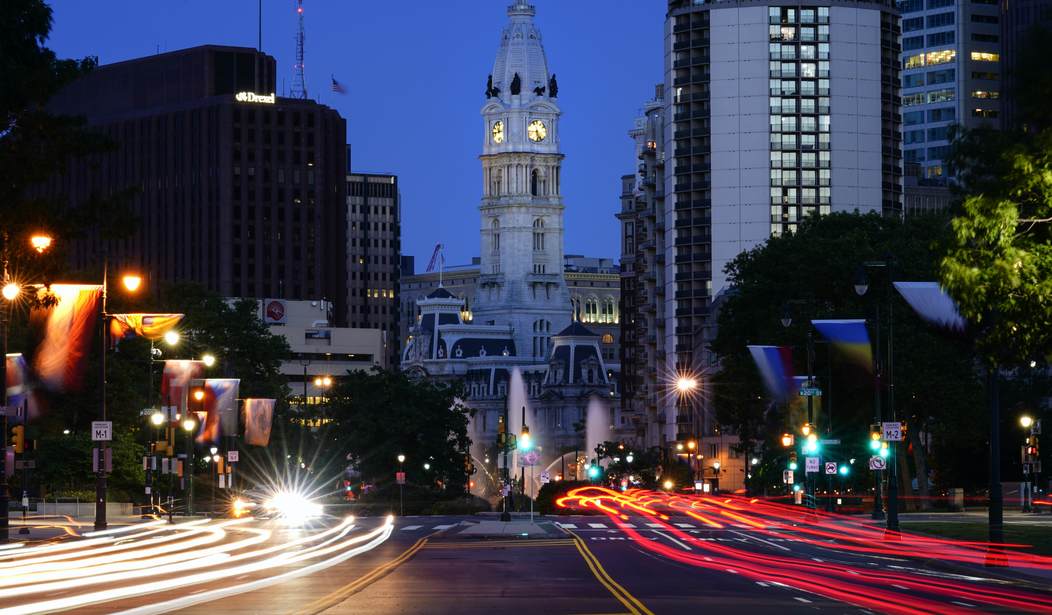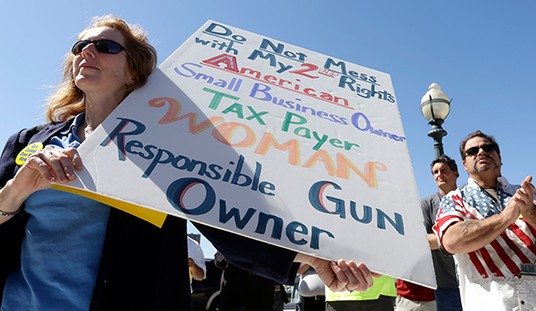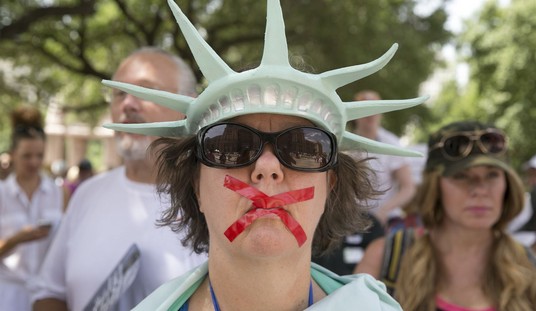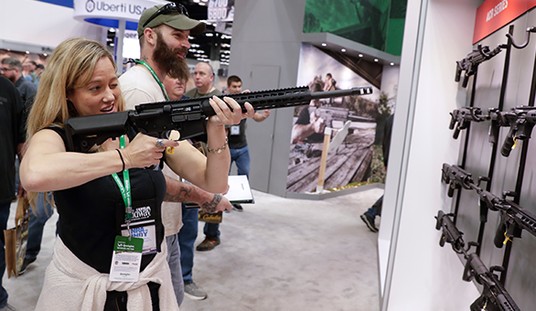When it comes to legislation and policing, the one thing everyone needs to realize is laws mean penalties. Depending on the type of law written, that law could mean arrests. This is a concept that seems to escape some members of our legislative branch whom advocate for things like police reform, etc. What’s interesting about that same caucus of so-called representatives, which we’ll call the anti-freedom caucus, is that they also get all giddy about creating and writing more and more laws. More laws = more arrests. Whoever that “anti-freedom caucus” is, well, you can figure that out easily. This brings up an interesting concept being executed in the city of Brotherly Love.
One of the bills amended the city’s Traffic Code to reclassify seven offenses, including broken taillights and improperly displayed registration stickers, as “secondary violations,” The Philadelphia Inquirer reported. If a driver commits a secondary violation, police officers will issue a citation by mail rather than pulling over the offender.
Philadelphia is the first major US city to ban such stops, according to The Inquirer.
“Too many people who look like me, a traffic stop is a rite of passage – we pick out cars, we determine routes, we plan our social interactions around the fact that it is likely that we will be pulled over by police. By removing the traffic stops that promote discrimination rather than public safety, City Council has made our streets safer and more equitable,” Philadelphia City Councilmember Isaiah Thomas, author of the Driving Equality bills, said in a statement.
Because approximately 97% of police vehicle stops are for low-level violations, the ban could lead to as many as 300,000 fewer police encounters each year, the Defender Association told The Inquirer.
Why this is meaningful, aside from the obvious are the statistics laid out in the report:
Data from Thomas’ office found Black drivers in Philadelphia accounted for 72% of police stops for vehicle code violations over the course of one year, while only 43% of the city’s population is Black, The Inquirer reported.
There very well may be something to this. Personally, I’m not a fan of non-policing. There should be law and order. However, I’m also not a fan of legislative or executive overreach. I think we have far too many laws on the books to begin with. If a traffic stop over a busted taillight turns into an arrest because of some aggressive “police work”, that’s kind of a disproportionate penalty to the “crime.” There should be no “fishing expeditions” when a normal traffic stop occurs. While a busted taillight can be considered a problem to the public safety and welfare of the population at large, it’s not some sort of violent pre-meditated crime. Can we consider this a “victimless crime”? No. Anyone navigating the road with a vehicle that does not have the proper signaling lights would be “victimizing” others by this infraction. The idea that the offender would have to just deal with a ticket in the mail, not all that bad.
The nuances of getting such a ticket in the mail are many. What if the owner of the vehicle was not the driver and some infraction occurred? Naturally the owner would have to deal with the issue. This is no different than the red light cams that cropped up all over the nation, many of which have ceased issuing citations on Fourth Amendment grounds and privacy concerns, rightfully so. Alright, that’s an issue that needs to be addressed. The statistics though, they tell a story that perhaps this could be a better way of policing. They’re giving it a shot and I’m interested in seeing what kind of results they have. Who wants to be pulled over anyway, regardless of race?
What else does the bill do?
The Philadelphia City Council passed two bills that will create a public, searchable database of traffic stops and bar police officers from pulling over drivers for low-level motor vehicle offenses, a tactic that disproportionately impacted Black drivers.
…
The searchable traffic stop database must be developed within a year, according to the bill’s text, and include driver and officer information, demographic and geographic information, and the reason for each stop.
“Data will tell us if we should end more traffic stops or amend how this is enforced. Data will also tell other cities that Philadelphia is leading on this civil rights issue and it can be replicated,” Thomas said.
The bill has been sent to the desk of Philadelphia Mayor Jim Kenney to be signed into law.
Data is data. If the governmental agencies in Philadelphia will be able to glean some insight into different possible issues in the city from this data, then Kudos! Have at it. These are alleged infractions of the law that affect other people, so such data collection should help with policing and community interactions/intervention efforts. It’s not like it’ll be a big brother list of sorts. The data is already logged, just not aggregated the way they want it.
While we’re on the subject of minorities being disproportionally impacted by laws, let’s look at gun laws. In Philadelphia, should someone get caught carrying a firearm without a permit to carry, they are breaking the law. Here’s the thing, a traffic violation affects people. Carrying a firearm for self-defense is essentially a victimless crime if statute say’s it’s “illegal”. Who does it injure for someone to carry a gun to protect themselves? No one. No one except the bearer if they don’t have a comfortable holster. This concept of non-policing should be extended to other areas. That one group of political ideologues that wants less interactions with the police, less incarceration for minorities and persons of color, and a fairer United States should by nature embrace this idea. The same disproportionate application of traffic laws against persons of color is also true when it comes to incarceration from an infraction of a so-called gun control law. #truth
If there’s a statute that limits someone’s ability to bear arms, which is the case in all the non-permitless carry states, the breaking of that law does not leave behind a victim or anyone with an injury claim. No one gets rear-ended because someone is carrying a gun. Now if the taillights don’t work, that could happen. As long as a person has lawful intent, there should be no problem with this. Unfortunately we are in a country where permission needs to be granted for such things in a good portion of jurisdictions and the inability to get said permission should not be a crime. At least not when we’re talking a constitutional right. Philly, take note and ponder this. You might be able to put less people in jail if you adopt this ideal. As for gun regulations. With high hopes for a favorable opinion with Bruen, we’ll be able to move onto the next regulation to cut down.








Join the conversation as a VIP Member